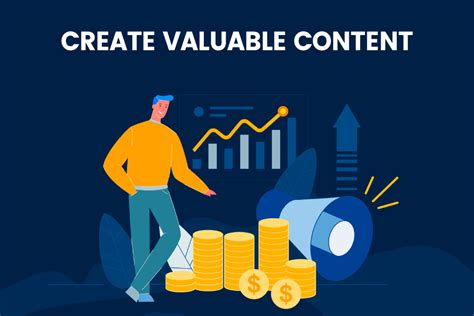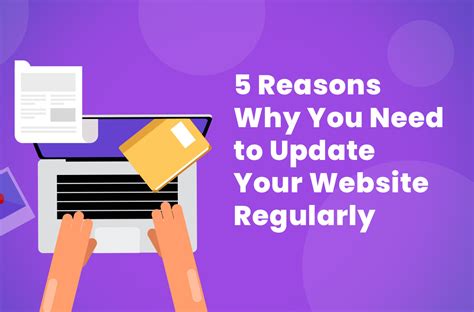When it comes to drawing organic traffic, every website owner dreams of conquering the digital landscape. One of the most crucial aspects of achieving online success is ensuring that your website ranks high in search engine results. This can be a challenging task given the competitive online environment and ever-evolving algorithms utilized by search engines. However, by implementing a few strategic measures, you can significantly improve your website's position in search engine results pages (SERPs) and effectively increase your online visibility.
The key to enhancing your website's ranking lies in understanding the intricacies of search engine optimization (SEO) and adapting your digital strategies accordingly. By mastering the art of SEO, you can optimize your website to make it more search engine-friendly, thus attracting more organic traffic. From carefully crafting compelling content to implementing relevant keywords, and from enhancing website speed to building quality backlinks, there are numerous approaches that can propel your website to the top.
One of the most critical aspects of improving your website's ranking is by producing high-quality and relevant content. To engage both search engines and human readers, you must create content that is informative, unique, and easily understandable. In addition, incorporating relevant keywords in a strategic manner can significantly boost the visibility of your website. By conducting thorough keyword research and intelligently placing these keywords throughout your content, you can optimize your website's pages and increase its chances of appearing at the top of SERPs.
Choose the Appropriate Keywords to Optimize Your Content

One of the crucial factors in improving your online visibility and driving organic traffic to your website is strategically selecting and incorporating the right keywords in your content. By identifying the most relevant and effective keywords, you can optimize your website's search engine rankings and attract your target audience.
Start by conducting thorough research to understand your audience's search habits and preferences. Consider using various tools and resources to identify popular keywords related to your industry and niche. Analyze search volume and competition to ensure you choose keywords that have a high search volume but are not too competitive.
Once you have a list of potential keywords, evaluate their relevance to your content. Opt for keywords that accurately reflect the topic and purpose of your webpage. Incorporate long-tail keywords, which are more specific and have a higher conversion potential. Additionally, consider using synonym variations to broaden your reach and target different user intents.
Ensure that your chosen keywords are used naturally throughout your content. Avoid keyword stuffing, as it can negatively impact your search engine rankings. Instead, focus on creating high-quality, informative, and engaging content that seamlessly incorporates the keywords in a way that enhances the user experience.
Furthermore, it is beneficial to optimize various elements of your webpage with the selected keywords. This includes optimizing your titles, meta descriptions, heading tags, and image alt tags. By strategically placing keywords in these elements, you can enhance the visibility of your content in search engine results and improve your website's search engine ranking.
In conclusion, choosing the right keywords for your content is a fundamental aspect of boosting your website's visibility and search engine ranking. Through research, evaluation, and strategic incorporation, you can optimize your content to attract your target audience and drive organic traffic to your website.
Maximizing Your Website's Metadata Potential
Smartly optimizing your website's metadata can significantly enhance its visibility and relevance in search engine results. Metadata serves as valuable information about your website's content, making it crucial for search engines to understand and rank your page accordingly. By carefully crafting your metadata, you can effectively communicate the essence of your website and attract the right audience.
Use Captivating Page Titles Ensure your page titles are concise yet attention-grabbing, providing a sneak peek into your content. Utilize relevant keywords and phrases creatively to entice users to click on your website. |
Create Compelling Meta Descriptions Craft compelling meta descriptions that accurately describe the content of each page. Use persuasive language and incorporate relevant keywords to encourage users to choose your website over others in the search results. |
Optimize Image Alt Text Don't underestimate the power of image alt text in improving your website's discoverability. Utilize descriptive alt text that includes relevant keywords to allow search engines to understand the visual elements of your website. |
Incorporate Rich Snippets Enhance the appearance of your search results by incorporating rich snippets. These structured data markups provide additional information about your website, such as ratings, reviews, and events, helping your website stand out and increase click-through rates. |
Use Schema Markup Implementing schema markup can further improve your website's visibility and relevance. Schema markup allows search engines to understand the context of your content, leading to more accurate indexing and potentially higher rankings. |
Opt for Concise URLs Create concise and descriptive URLs that convey the purpose of your web pages. Avoid lengthy URLs that are difficult to read and understand, as they may deter users from clicking on your links in search results. |
Utilize Header Tags Effectively Properly using header tags, such as H1, H2, and H3, can improve the structure and readability of your content. Additionally, search engines assign more importance to header tags, so incorporating relevant keywords into them can positively impact your website's search ranking. |
Implement Canonical Tags Canonical tags help prevent duplicate content issues by specifying the preferred version of a webpage. By utilizing canonical tags, search engines understand which page to index and display, avoiding potential ranking penalties resulting from duplicate content. |
Enhance Mobile-Friendliness With an increasing number of users accessing the internet through mobile devices, optimizing your website for mobile viewing is essential for higher search rankings. Ensure that your metadata reflects a mobile-friendly experience, capturing the attention of mobile users. |
Monitor and Analyze Performance Regularly monitor and analyze the performance of your website's metadata through various analytics tools. Gain insights into user behavior, click-through rates, and organic search traffic to refine your metadata strategies and continuously improve your website's search engine ranking. |
Create Valuable and Relevant Content

One of the key factors in improving your website's visibility in search engines is the quality and relevance of the content you provide. By creating high-quality, valuable content, you increase the chances of attracting organic traffic and engaging your audience.
When it comes to content, it's important to prioritize quality over quantity. Instead of producing a large volume of mediocre content, focus on creating fewer, but well-researched and insightful articles or blog posts. This will not only help you establish yourself as an authoritative source in your industry but also encourage other websites to link back to your valuable content, which can greatly boost your search engine rankings.
- Relevance: Creating relevant content that addresses your target audience's needs and interests is crucial. When visitors find content that is tailored to their specific queries or concerns, they are more likely to stay on your website, explore other pages, and become repeat visitors.
- Originality: One of the keys to standing out from the crowd is creating original content. Avoid duplicating or rehashing existing information that can be found elsewhere. Instead, bring a unique perspective, provide fresh insights, and offer practical advice that sets your content apart.
- Useful and Actionable: Your content should be both useful and actionable. Provide your readers with information they can apply in their own lives or businesses. This can include step-by-step guides, practical tips, case studies, or industry insights that help your audience solve their problems or achieve their goals.
- Engaging: Capturing your audience's attention and keeping them engaged is crucial for increasing the time they spend on your website. Incorporate multimedia elements like images, videos, or infographics, and write in a conversational tone to make your content more engaging and enjoyable to read.
- Optimization: While creating valuable content is essential, it's also important to optimize it for search engines. Implementing relevant keywords, using descriptive headings, and structuring your content with bullet points or numbered lists can make it easier for search engines to understand and rank your content.
Remember, creating high-quality, relevant content is not a one-time effort, but an ongoing process. Regularly update and optimize your existing content, and consistently produce new content that is valuable to your target audience. By doing so, you can establish your website as a trusted source of information, improve your search engine rankings, and drive organic traffic to your site.
Optimize Your Website's Structure: Utilize Appropriate Heading Tags
Enhancing the organization and structure of your website is essential for improving its visibility and search engine optimization. Properly utilizing heading tags can significantly contribute to achieving this goal, as they help search engines understand the content hierarchy and provide a clear structure for users.
When creating content for your website, it's important to use the appropriate heading tags such as <h1>, <h2>, <h3>, and so on. These tags represent different levels of importance and should be used in a hierarchical manner, with <h1> being the most important and <h6> being the least.
By strategically incorporating heading tags, you can improve the readability and user experience of your website. The effective use of headings allows visitors to scan and understand the content quickly, making it more engaging and encouraging them to stay longer on your site.
Furthermore, search engines use heading tags to better understand the context and relevancy of your content. By including targeted keywords or phrases within your headings, you can signal to search engines that your content is valuable and relevant to specific search queries.
When using heading tags, it's important to remember to use them sparingly and avoid over-optimization. Stick to a logical structure and use headings to break up your content naturally. This way, your website will appear more authoritative and credible in the eyes of search engines and users alike.
- Ensure that each page of your website has a unique
<h1>tag that accurately reflects its content. - Use
<h2>tags for subheadings or to divide different sections of your content. - For further subdivisions, utilize
<h3>tags, followed by<h4>and so on, when necessary. - Make sure to follow a consistent hierarchy and avoid skipping levels in the heading structure.
In summary, optimizing your website's structure with proper heading tags is an integral part of improving its visibility and search engine ranking. By using heading tags appropriately, you can enhance the readability, user experience, and SEO performance of your website.
Enhance Your Website's Loading Speed

In today's fast-paced digital landscape, the loading speed of a website plays a crucial role in its success. A website that loads quickly not only provides a seamless user experience but also contributes to higher search engine rankings and increased traffic. To ensure that your website loads in a flash, it is essential to employ various optimization techniques and implement strategies to minimize loading time.
1. Optimize Image Sizes: Images often constitute a significant portion of a web page's file size. By optimizing the image sizes without compromising on quality, you can significantly reduce the load time of your website.
2. Enable Browser Caching: Browser caching allows temporary storage of web page resources on a user's device, reducing the need to re-download them on subsequent visits. Enabling browser caching improves loading speed for returning visitors.
3. Minify HTML, CSS, and JavaScript: Minifying these files involves removing unnecessary spaces, line breaks, and comments, resulting in smaller file sizes and faster loading times.
4. Utilize Content Delivery Networks (CDNs): CDNs distribute your website's static content across multiple servers strategically located worldwide. By leveraging CDNs, you can deliver web content to users from the server closest to their geographical location, reducing latency and improving loading speed.
5. Implement Lazy Loading: Lazy loading defers the loading of non-visible images and content until the user scrolls down to view them. This technique helps prioritize the loading of critical content and boosts overall page loading speed.
6. Reduce Redirects: Every redirect requires additional HTTP requests, which can increase the overall loading time. Minimizing the number of redirects or opting for direct links whenever possible helps enhance the speed of your website.
7. Use a Content Delivery Network: A CDN enables faster delivery of your website's content by caching it on multiple servers located geographically closer to the users. This significantly reduces latency and improves loading speed for users worldwide.
8. Enable Gzip Compression: Gzip compression reduces the file size of your website's resources before they are sent to the user's browser. This compression technique decreases bandwidth usage and speeds up the loading time for visitors.
9. Optimize CSS and JavaScript: Combining or minifying CSS and JavaScript files eliminates unnecessary code and reduces the number of requests made by the browser, resulting in a faster loading website.
10. Regularly Monitor Performance: Constantly monitoring your website's loading speed helps identify potential bottlenecks and areas for improvement. Regular performance checks allow you to optimize your website further and provide an excellent user experience.
By implementing these strategies, you can ensure that your website loads swiftly, attracting more visitors and improving overall user satisfaction.
Improve Your Website's Mobile Responsiveness
Enhancing your website's mobile responsiveness is essential for ensuring a smooth user experience and optimizing your online presence. With the increasing use of mobile devices, it is crucial to adapt your website to various screen sizes and resolutions to attract and engage visitors effectively.
Boost your website's mobile responsiveness by incorporating dynamic layouts that automatically adjust to different device sizes. This will ensure that your content is displayed correctly and optimally, regardless of whether users are accessing your website from a desktop, smartphone, or tablet.
Additionally, utilize responsive designs that allow your website to adapt fluidly to different screen orientations, such as landscape or portrait mode. This will provide a seamless browsing experience for users, enabling easy navigation and readability.
Improve your website's loading speed on mobile devices by optimizing images and minimizing the use of large files that may slow down page loading. Compressing images and using browser caching techniques can significantly enhance the overall performance of your website on mobile devices, ensuring quick and smooth access to your content.
Utilize mobile-friendly fonts and readable typography to enhance the legibility of your text on smaller screens. Ensure that the font size, line spacing, and paragraph width are adjusted appropriately for easy reading, eliminating the need for users to zoom in or scroll excessively.
Implement touch-friendly features on your website, such as large buttons and optimized navigation menus, to facilitate easy interaction and navigation for mobile users. Intuitive gestures, like swipe or pinch-to-zoom, can also enhance the overall user experience and make your website more mobile-friendly.
Furthermore, optimize your website's forms and input fields for mobile users. Simplify the input requirements and design mobile-friendly forms that adapt to smaller screen sizes, making it easy for visitors to fill out and submit information without frustration.
Ensure that all multimedia content, such as images, videos, and audio files, are mobile-responsive and play seamlessly on various devices. Implement responsive media players and compress your multimedia files to enhance loading speed and minimize compatibility issues.
Consider using mobile-specific meta tags, such as viewport and mobile-friendly tags, to provide search engines with additional information about your website's mobile compatibility. This can help improve your website's visibility and ranking in mobile search results.
Monitor and analyze your website's mobile responsiveness regularly using tools and analytics to identify any areas that may need improvement. User feedback and testing on different devices can also provide valuable insights into enhancing the mobile experience on your website.
In conclusion, enhancing your website's mobile responsiveness is vital for attracting and engaging mobile users effectively. By implementing dynamic layouts, optimizing loading speed, utilizing mobile-friendly features, and considering user feedback, you can ensure a seamless mobile browsing experience and improve your website's overall performance.
Enhance Your Website's Search Visibility: Tips for Establishing Quality Backlinks

Developing a strong network of high-quality backlinks is a crucial aspect of improving your website's search visibility. By strategically building links from reputable sources, you can enhance your website's authority and credibility in the eyes of search engines. In this section, we will explore effective techniques and best practices for creating backlinks that will positively impact your website's performance in search engine results.
- 1. Seek partnerships and collaborations with influential websites and industry-related publications. By establishing relationships and contributing valuable content, you can secure valuable backlinks from trusted sources within your niche.
- 2. Take advantage of guest blogging opportunities. Guest posting on relevant and authoritative websites allows you to showcase your expertise and gain valuable backlinks to your site in return.
- 3. Leverage the power of social media platforms. By actively engaging with your audience on platforms such as Facebook, Twitter, and LinkedIn, you can generate interest in your content and attract potential backlinks from interested parties.
- 4. Create compelling and shareable content that naturally attracts backlinks. By producing high-quality articles, infographics, videos, or other forms of content, you increase the likelihood of others linking to it, thereby boosting your backlink profile.
- 5. Monitor your competitors' backlink profiles. By analyzing their strategies, you can identify potential opportunities to obtain backlinks from the same sources, helping you stay competitive in search engine rankings.
- 6. Participate in relevant online communities and forums. By actively contributing helpful insights and adding value to discussions, you can establish yourself as an authority in your field and gain backlinks from users interested in your expertise.
- 7. Utilize online directories and listings. Submitting your website to reputable directories and listings can help improve your website's visibility and attract quality backlinks from authoritative sources.
- 8. Engage in influencer marketing. By partnering with influential individuals within your industry, you can leverage their reach and audience to gain valuable backlinks and increase your website's exposure.
- 9. Conduct thorough research before reaching out for backlink opportunities. Ensure that the websites you target are relevant, reputable, and have a strong online presence to maximize the value of the backlinks you acquire.
- 10. Foster relationships with bloggers and journalists. By maintaining personal connections with influential content creators and media professionals, you increase your chances of receiving valuable backlinks from their platforms.
By implementing these strategies, you can establish a strong backlink profile that contributes to improving your website's search visibility and attracts organic traffic. Remember, quality is paramount when it comes to backlinks, so focus on building relationships and obtaining links from authoritative sources within your industry.
Enhancing your website's visibility through social media promotion
In today's digital era, leveraging the power of social media platforms has become crucial for businesses aiming to expand their online presence and drive traffic to their websites. By utilizing various social media channels, you can effectively promote your website's content to a wider audience and improve its overall visibility on search engines.
- Leverage the influence of social media: Harness the potential of popular social media platforms such as Facebook, Twitter, Instagram, and LinkedIn to create a strong online presence for your website.
- Content amplification: Share your website's content on social media channels to amplify its reach and increase the chances of attracting more visitors.
- Engage with your audience: Actively interact with your followers, respond to comments, and encourage discussions related to your website's content to foster an engaged online community.
- Utilize hashtags: Implement relevant hashtags in your social media posts to increase visibility and discoverability among users interested in similar topics.
- Collaborate with influencers: Partner with industry influencers or micro-influencers who can promote your website's content to their followers, driving more traffic and boosting your online presence.
- Run social media contests and giveaways: Create appealing contests and giveaways on social media platforms to encourage user participation and generate buzz around your website.
- Create shareable content: Develop high-quality, engaging content that is highly shareable and resonates with your target audience, increasing the likelihood of it being shared across social media platforms.
- Promote user-generated content: Encourage your audience to create and share content related to your website, highlighting their experiences and opinions. This will not only increase engagement but also promote your website organically.
- Monitor and analyze social media metrics: Regularly track the performance of your social media campaigns, analyzing metrics such as reach, engagement, and referral traffic to identify areas for improvement.
- Integrate social sharing buttons: Make it easy for visitors to share your website's content by incorporating social sharing buttons on your webpages, facilitating seamless content promotion.
By effectively utilizing social media for content promotion, you can significantly enhance your website's visibility, drive targeted traffic, and ultimately improve your online success. Implementing these strategies will enable your website to stand out in the competitive online landscape, attracting more visitors and potentially increasing conversions.
Regularly Update and Refresh Your Website

In the world of online presence, a dynamic and ever-evolving website holds the key to success. Keeping your website regularly updated and refreshed is essential to ensure its relevance and engagement with the audience. It not only enhances the user experience but also improves your website's visibility in search engine results. In this section, we will explore the significance of regularly updating and refreshing your website, and provide you with effective strategies to achieve this.
- Introduce Fresh Content: Providing new and relevant content on your website is crucial for attracting and retaining visitors. This can be done through blog posts, news updates, or articles related to your industry. By regularly adding fresh content, you demonstrate your expertise and keep visitors engaged, encouraging them to return to your site.
- Update Outdated Information: It is essential to review your website periodically to ensure all the information provided is accurate and up to date. Outdated content can mislead visitors and harm your credibility. Make sure to update contact details, pricing, product information, and any other relevant details to ensure accuracy.
- Optimize for Search Engines: Regularly updating and refreshing your website allows you to optimize it for search engines. Search engines value websites that frequently provide new content. By incorporating relevant keywords and phrases into your updates, you increase the chance of attracting organic traffic and improving your search engine ranking.
- Showcase Testimonials and Reviews: Incorporating customer testimonials and reviews on your website can boost trust and credibility. Regularly updating these testimonials and showcasing recent positive reviews can help build confidence in your brand and encourage potential customers to choose your products or services.
- Improve User Experience: Regular updates to your website can also include improvements to the user experience. This can involve enhancing site navigation, optimizing page loading speed, ensuring mobile responsiveness, and updating the overall design and layout. By providing a seamless and user-friendly experience, you increase the chances of visitors staying longer on your site and engaging with your content.
Regularly updating and refreshing your website not only benefits your audience but also sends positive signals to search engines. By following the strategies mentioned above, you can ensure that your website remains relevant, engaging, and optimized for both user experience and search engine visibility.
FAQ
What does it mean to optimize my website's content with relevant keywords?
Optimizing your website's content means incorporating relevant keywords throughout your web pages. These keywords should be phrases that your target audience is likely to search for on search engines. By strategically placing these keywords in your website's content, meta tags, headings, and titles, you can increase the chances of your website appearing in search engine results for those specific keywords. However, it is important to use keywords naturally and not to overstuff them, as search engines penalize websites for keyword stuffing.
How can improving my website's user experience help with search engine ranking?
Improving your website's user experience can positively impact your search engine ranking. Search engines consider user experience as an important factor when determining the relevance and quality of a website. If your website is user-friendly, easy to navigate, and provides valuable content, visitors are more likely to spend more time on your site, reducing the bounce rate. A low bounce rate and increased visitor engagement are signals to search engines that your website is useful and relevant, which can lead to higher rankings in search results.
Why is it important to monitor my website's performance using analytics?
Monitoring your website's performance through analytics tools is crucial for improving your search engine ranking. Analytics provide valuable insights into visitor behavior on your website, such as the number of visitors, their demographics, their source of traffic, the pages they visit, and how long they stay on your site. By analyzing this data, you can identify areas for improvement, such as high bounce rates on specific pages or low conversion rates. Making informed decisions based on analytics can help you optimize your website and content, ultimately leading to better search engine rankings.



